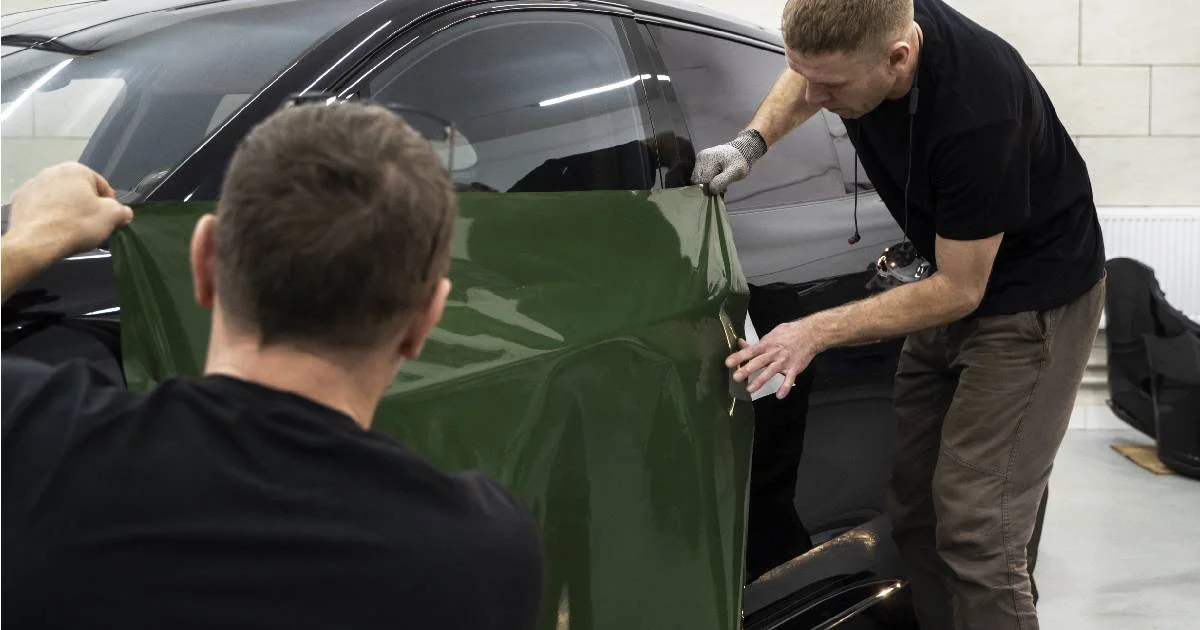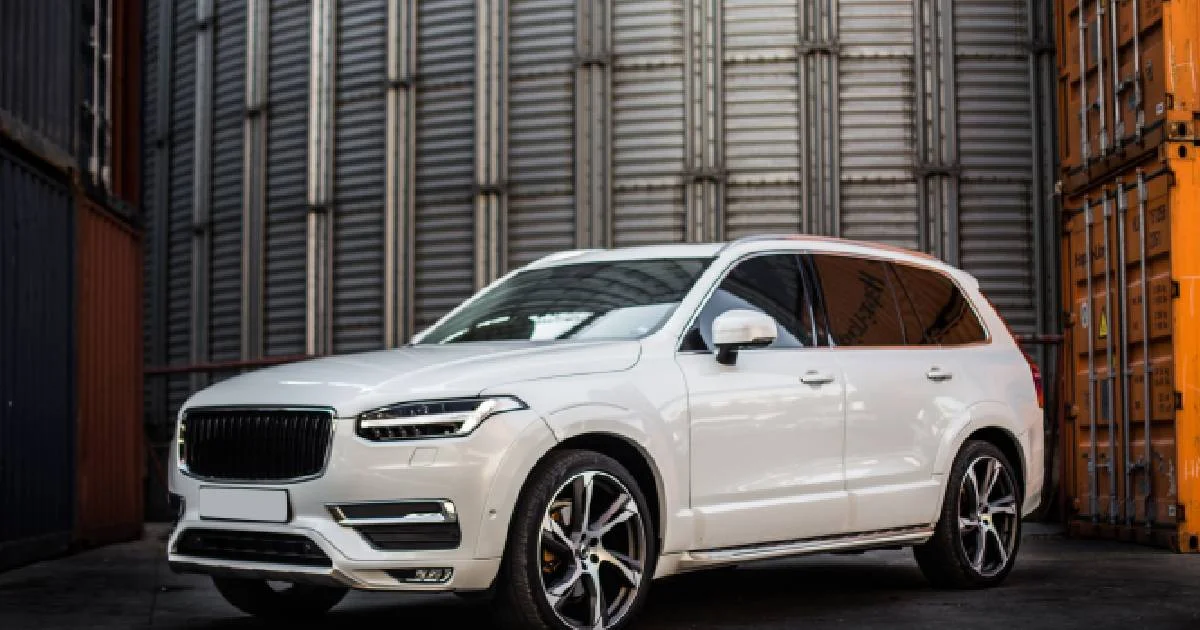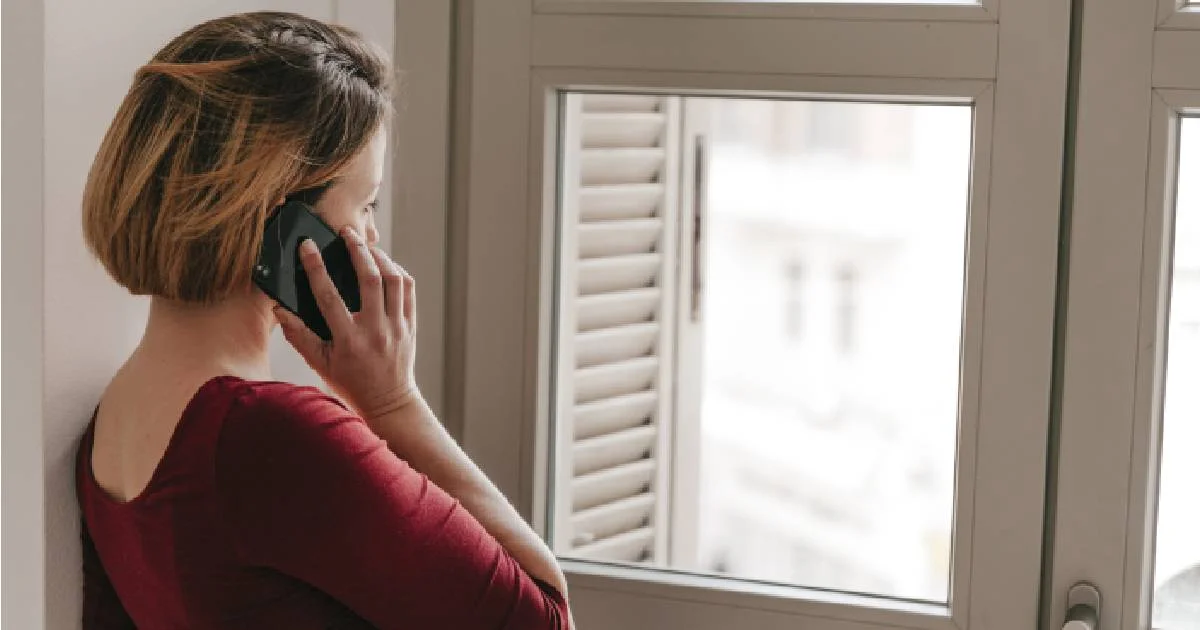
Vinyl Wrap vs. Paint: Making the Right Choice for Your Vehicle in Rotorua
01 Dec 2023, By AdminAre you considering a new look for your vehicle in Rotorua? When it comes to transforming the appearance of your car, two popular options stand out: vinyl wrap and traditional paint. Each method has its own set of advantages and considerations, making the decision a crucial one for car enthusiasts. In this post, we'll explore the pros and cons of vinyl wrap versus paint to help you make the right choice for your vehicle in Rotorua.
Vinyl Wrap Rotorua: A Trendy and Protective Option
Advantages of Vinyl Wrap
- Endless Design Possibilities: Vinyl wraps offer a wide range of colors, textures, and finishes, allowing you to unleash your creativity and achieve a unique look for your vehicle.
- Protection for Your Original Paint: Vinyl wraps act as a protective layer for your car's factory paint, shielding it from stone chips, road debris, and minor scratches.
- Removability: One of the significant advantages of vinyl wraps is that they are removable. If you want to change the look of your vehicle or return it to its original state, a vinyl wrap can be taken off without damaging the underlying paint.
- Cost-Effective: In many cases, vinyl wrapping can be a more cost-effective option than a full-paint job, making it an attractive choice for those on a budget.
Considerations for Vinyl Wrap
- Durability: While vinyl wraps provide protection, they may not be as durable as paint when it comes to resisting major impacts or harsh weather conditions.
- Professional Installation: For a flawless finish, it's crucial to have your vinyl wrap installed by a professional. Look for reputable "vehicle wrap near me" services in Rotorua to ensure quality work.
Vehicle Paint in Rotorua: Timeless Elegance with a Few Caveats
Advantages of Vehicle Paint
- Longevity: A well-executed paint job can last for many years, providing a durable and resilient finish.
- High-Quality Finish: Professional painters can achieve a high-quality, glossy finish that is often considered the gold standard in the automotive industry.
Considerations for Vehicle Paint
- Cost: A quality paint job can be more expensive than a vinyl wrap, especially if you opt for custom colors or intricate designs.
- Limited Design Options: While paint offers a classic and elegant look, it may not provide the same variety of design options as vinyl wraps.
- Permanent: Unlike vinyl wraps, paint is a permanent change to your vehicle's appearance. Reverting to the original look may require a significant investment.
Making the Right Choice
Ultimately, the decision between vinyl wrap and paint depends on your preferences, budget, and the desired level of customization. If you're looking for a versatile and cost-effective option with a range of design possibilities, a vinyl wrap in Rotorua might be the ideal choice. On the other hand, if you prioritize longevity and a timeless finish, a professional paint job could be the way to go.
Before making your decision, be sure to research reputable "vehicle wrap near me" services in Rotorua and consult with professionals to determine the best option for your specific vehicle and style preferences. Whether you choose the modern flair of a vinyl wrap or the timeless elegance of a paint job, transforming your vehicle in Rotorua is an exciting journey that reflects your unique taste and style.

What Is Car Wrapping and Why Should You Consider It?
01 Dec 2023, By AdminIn a world where personalization and individuality reign supreme, car enthusiasts and owners are constantly looking for unique ways to make their vehicles stand out. While custom paint jobs have long been a popular choice for personalizing a car's appearance, car wrapping has emerged as a revolutionary and cost-effective alternative. In this blog, we'll explore the concept of car wrapping and why you should consider it as a viable option for transforming your vehicle's look.
Why Should You Consider Car Wrapping?
- Aesthetic Freedom: Car wrapping offers an incredible degree of personalization. You can choose from a wide range of colors, patterns, and finishes to create a look that's uniquely yours. Whether you want a sleek matte black finish or a vibrant, attention-grabbing design, the possibilities are endless.
- Cost-Effective: Compared to a custom paint job, car wrapping is a more budget-friendly option. It allows you to change your vehicle's appearance without the high cost of a complete repaint.
- Protective Properties: The vinyl film provides a layer of protection for your car's original paint, shielding it from minor scratches, stone chips, and the effects of UV rays. When it's time to remove the wrap, your car's paint will look as good as new.
- Temporary or Reversible: Car wraps are not permanent modifications. If you decide you want a different look or if you're selling your vehicle, the wrap can be easily removed without damaging the original paint.
- Promotional and Branding Opportunities: Car wrapping is not limited to personal vehicles. Businesses often use vehicle wraps as an effective form of mobile advertising, turning their company cars into moving billboards.
- Resale Value: A well-maintained wrapped car can potentially fetch a higher resale value as the original paint underneath is protected from wear and tear.
- Quick Turnaround: Car wrapping typically takes less time than a traditional paint job, allowing you to get back on the road with your transformed vehicle sooner.
Choosing the Right Professional
For the best results, it's crucial to choose an experienced and reputable car wrapping professional. Look for someone who uses high-quality vinyl materials and has a portfolio of previous work. The skill and precision of the installer can make a significant difference in the final look and longevity of the wrap.
Car wrapping is a versatile and cost-effective way to personalize and protect your vehicle. Whether you're looking to change your car's color, create a unique design, or use your vehicle for advertising purposes, car wrapping offers numerous benefits. Plus, with easy removal and preservation of your car's resale value, it's a win-win choice for those who want to make a statement on the road. So, if you're considering a fresh look for your car, don't overlook the exciting world of car wrapping. It might just be the perfect solution for you.

Smart Home Integration: The Future of Window Tinting for 2023
01 Dec 2023, By AdminIn a rapidly advancing world of technology and automation, our homes are becoming smarter by the day. From thermostats that adapt to our preferences to voice-controlled lighting systems, we are witnessing a revolution in the way we interact with our living spaces. Window tinting, once seen as a simple solution for privacy and heat reduction, is also stepping into the future.
The Basics of Home Window Tinting
Before we delve into the future of window tinting, let's start with the basics. Home window tinting involves applying a thin film to the interior or exterior of your windows. These films are designed to reduce the amount of visible light, UV rays, and heat that enters your home. They offer several benefits, including:
- Energy Efficiency: Tinted windows can help regulate indoor temperatures, reducing the need for excessive heating or cooling, thereby saving energy and lowering utility bills.
- Privacy: Tinted windows can provide privacy by preventing outsiders from peering into your home while maintaining your view of the outside.
- UV Protection: Tinted windows block harmful UV rays, protecting your furniture, flooring, and artwork from fading and sun damage.
- Glare Reduction: Tinted windows can significantly reduce glare on screens, making it more comfortable to watch TV or work on a computer.
- Enhanced Security: Some advanced tints can reinforce your windows, making them more resistant to shattering.
Smart Home Integration
The integration of window tinting into the broader ecosystem of smart homes is undoubtedly one of the most exciting developments in the field. Here's how it's evolving in 2023:
- Automated Tint Control: Smart window tinting allows homeowners to control the tint level of their windows with a simple touch of a button or a voice command. Through smartphone apps or smart home systems like Amazon Alexa or Google Home, you can easily adjust the tint to suit your preference, time of day, or specific needs. For example, you can schedule your windows to tint at certain hours to reduce heat and glare during the brightest parts of the day.
- Sunlight Sensing Technology: Many modern window tinting solutions are equipped with sunlight sensors. These sensors can detect the intensity of sunlight and automatically adjust the tint level accordingly. When the sun is at its peak, the tint darkens to block excessive heat and glare. As the day transitions into evening, the tint lightens to allow more natural light into your home.
- Integration with Smart Home Systems: Smart window tinting is now seamlessly integrated with other smart home systems. This means that you can coordinate your window tinting with other smart devices in your home. For instance, if your thermostat detects a rise in temperature, it can trigger your window tinting to darken, helping your HVAC system maintain a comfortable indoor environment more efficiently.
- Voice Commands: Voice-activated controls are becoming increasingly popular in smart homes. Window tinting can now be adjusted with a simple voice command. Imagine saying, "Alexa, tint the living room windows," and watching as your windows respond accordingly. This level of convenience and automation is making life in a smart home even more enjoyable.
- Energy Efficiency: Smart window tinting not only enhances comfort but also contributes to energy savings. By working in conjunction with your smart thermostat, it ensures that your home remains at an optimal temperature. This reduces the load on your heating and cooling systems, ultimately lowering your energy consumption and utility costs.
Conclusion
In 2023, home window tinting has evolved from a simple, passive solution to an integral part of the smart home ecosystem. It not only provides the traditional benefits of privacy, UV protection, and glare reduction but also contributes to energy efficiency and enhances the overall quality of life in your home. With the integration of automation, sunlight sensors, and compatibility with other smart devices, the future of window tinting is undoubtedly bright.
As technology continues to advance, we can expect even more exciting developments in the world of home window tinting. The future is now, and it looks clear, comfortable, and smart, thanks to these innovative solutions that are transforming our living spaces. So, if you haven't considered smart window tinting for your home, it might be time to embrace the future of living comfortably and efficiently.

Preserve Your Car's Shine in Hamilton: The Ultimate Guide to Paint Protection Film
01 Dec 2023, By AdminEvery car owner in Hamilton knows the thrill of driving down the scenic streets, from the picturesque waterfront to the bustling city center. Your car isn't just a means of transportation; it's a reflection of your style and personality. However, the roads in Hamilton can be tough on your vehicle's paint, with debris, harsh weather, and everyday wear and tear taking a toll. This is where Paint Protection Film (PPF) comes to the rescue. In this comprehensive guide, we'll explore how Paint Protection Film in Hamilton can help you preserve your car's shine and keep it looking like new.
What is Paint Protection Film?
Paint Protection Film, often referred to as clear bra or PPF, is a durable and transparent film that is applied to the exterior surfaces of your vehicle, especially vulnerable areas such as the hood, front bumper, side mirrors, and door edges. This innovative technology is designed to provide a shield against various elements that can damage your car's paint, including:
- Rock Chips and Debris: As you navigate Hamilton's roads, your car is exposed to rocks, gravel, and debris that can chip and scratch the paint. PPF acts as a barrier, absorbing the impact and preventing damage.
- UV Rays: The intense New Zealand sun can cause your car's paint to fade and deteriorate over time. Paint Protection Film is engineered with UV inhibitors that block harmful rays, preserving the vibrancy of your car's color.
- Environmental Factors: Rain, bird droppings, tree sap, and other environmental contaminants can mar your car's finish. PPF resists these elements, making it easier to clean your car and reducing the chances of staining.
Benefits of Paint Protection Film in Hamilton
-
Long-Lasting Protection: Investing in Paint Protection Film is like giving your car a suit of armor. Its self-healing properties allow it to "heal" minor scratches and swirl marks when exposed to heat, ensuring your car stays flawless.
-
Preserves Resale Value: A well-maintained exterior significantly boosts your car's resale value. PPF safeguards your car's finish, keeping it in pristine condition and appealing to potential buyers.
- No More Waxing: Tired of frequent waxing? Paint Protection Film eliminates the need for constant waxing and detailing, saving you time and money in the long run.
- Invisible Shield: PPF is virtually invisible once applied correctly. This means you can protect your car without altering its appearance.
Applying Paint Protection Film in Hamilton
When it comes to installing Paint Protection Film, it's essential to rely on professionals who understand the intricacies of the process. In Hamilton, you'll find several reputable auto shops that specialize in PPF installation. They'll carefully measure, cut, and apply the film to ensure a seamless and effective protective layer.
Maintenance Tips While Paint Protection Film is designed to withstand a lot, a little maintenance can go a long way in ensuring its longevity:
Protecting your car's finish doesn't have to be a constant battle against road hazards and the elements. With Paint Protection Film in Hamilton, you can drive confidently knowing that your vehicle's shine is preserved. By investing in this advanced technology, you're not only safeguarding your car's appearance but also enhancing its value and prolonging its lifespan. So, whether you're cruising along the Waikato River or exploring the city's vibrant neighbourhoods, Paint Protection Film ensures that your car stays as stunning as the day you drove it off the lot. Dr. Tint & Wrap stands out as Hamilton's premier destination for top-notch Paint Protection Film (PPF) services, combining expert craftsmanship with cutting-edge technology to provide unparalleled protection for your vehicle's paint. With a reputation for excellence and a commitment to customer satisfaction, they are the go-to choice for preserving your car's shine in the bustling city.
- Regular Cleaning: Wash your car regularly using a gentle car wash solution and a soft microfiber cloth. Avoid abrasive materials that could scratch the film.
- Avoid Harsh Chemicals: Steer clear of harsh chemicals or abrasive compounds when cleaning your car. Stick to products recommended by the PPF manufacturer or installer.
- Mindful Parking: When possible, park away from construction sites, trees, and areas prone to bird droppings. Being mindful of where you park can minimize potential risks.
